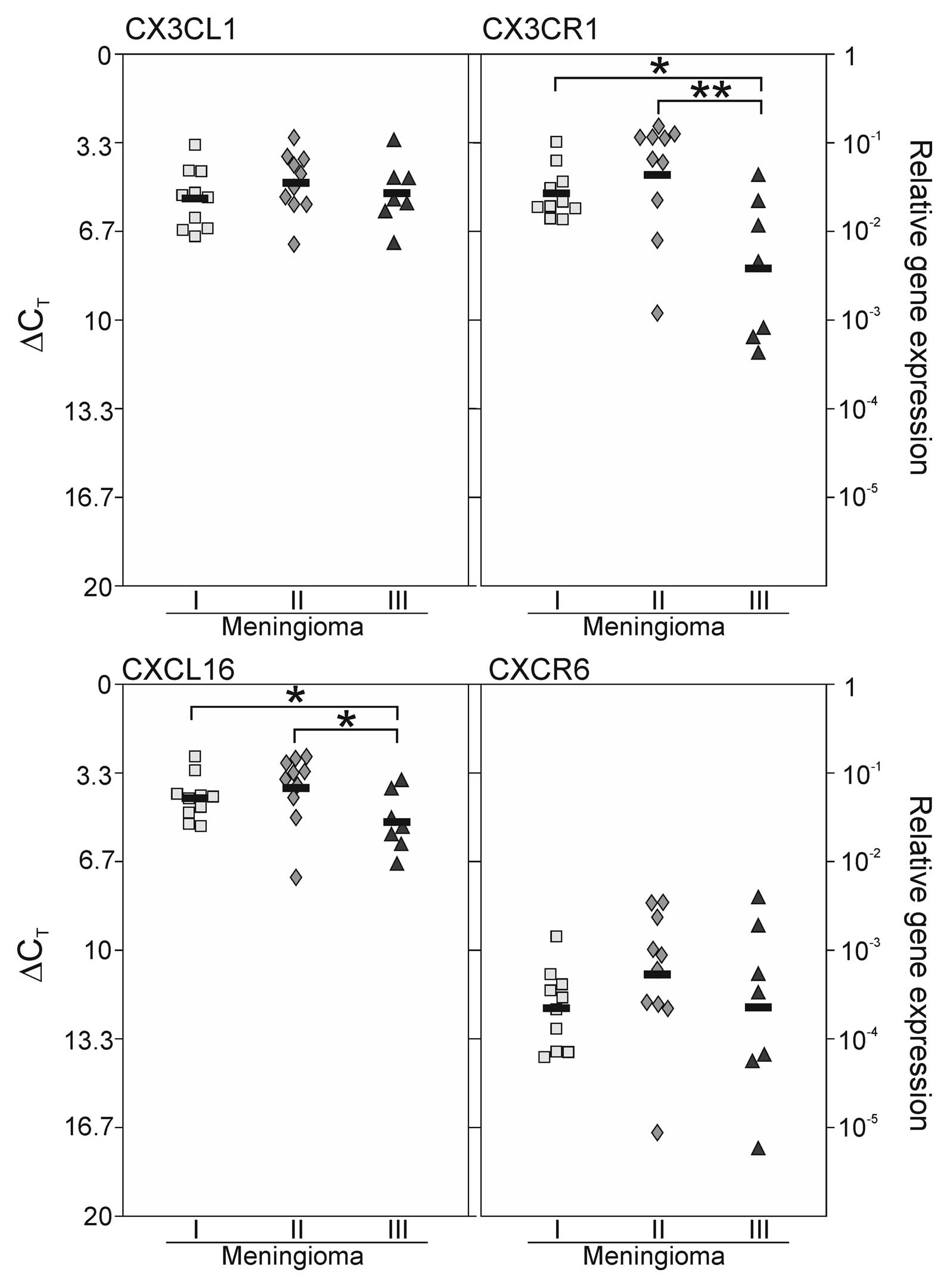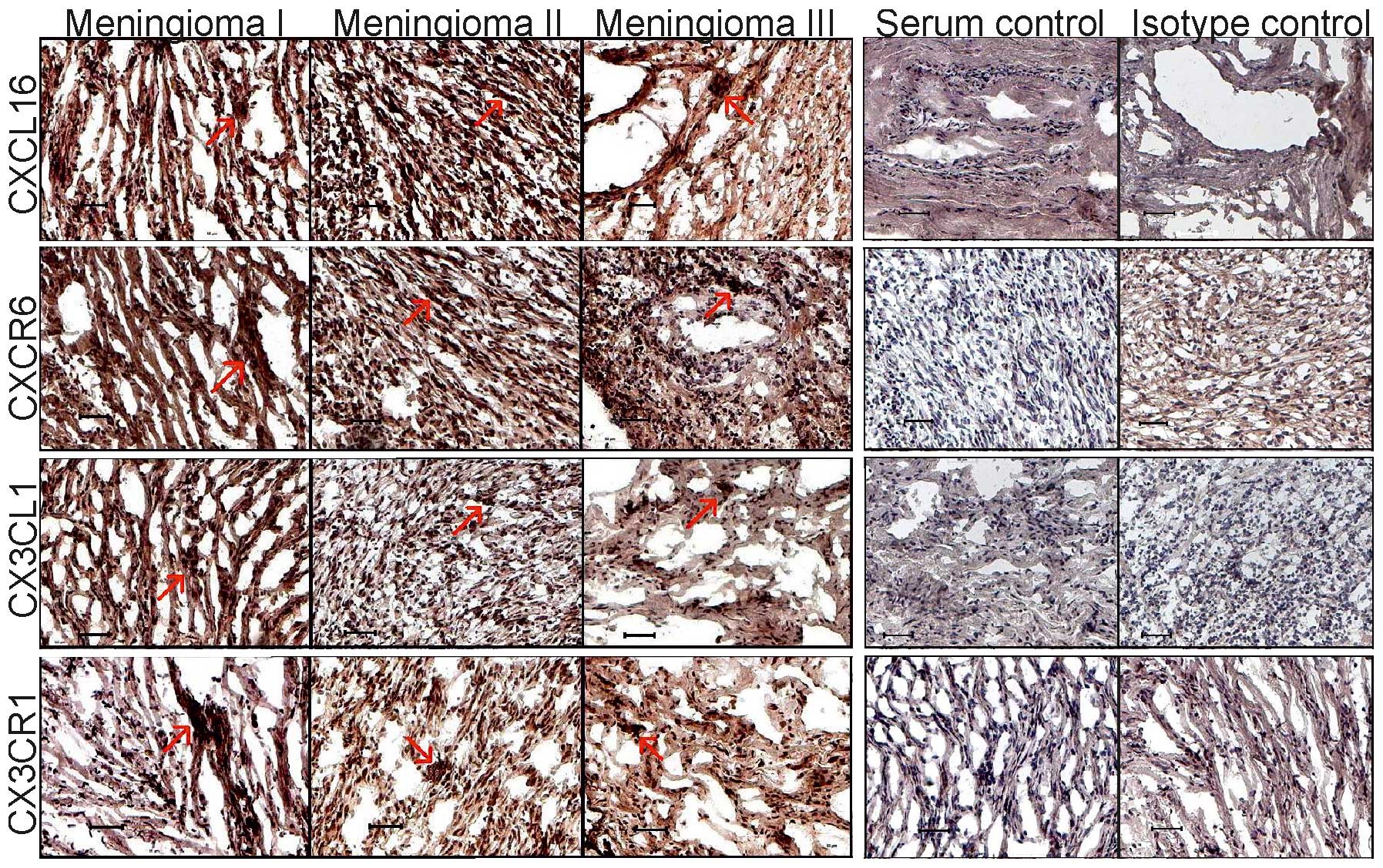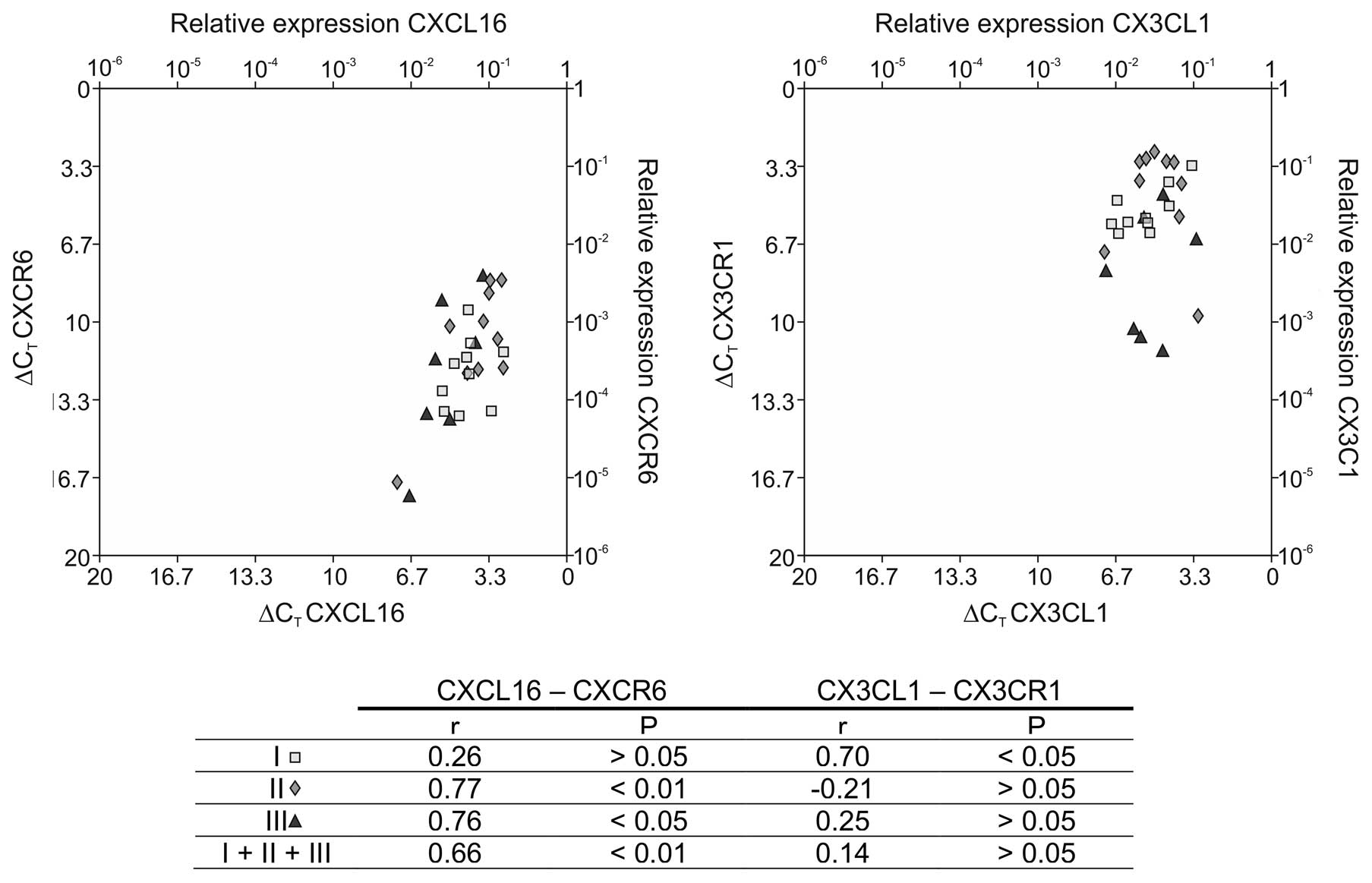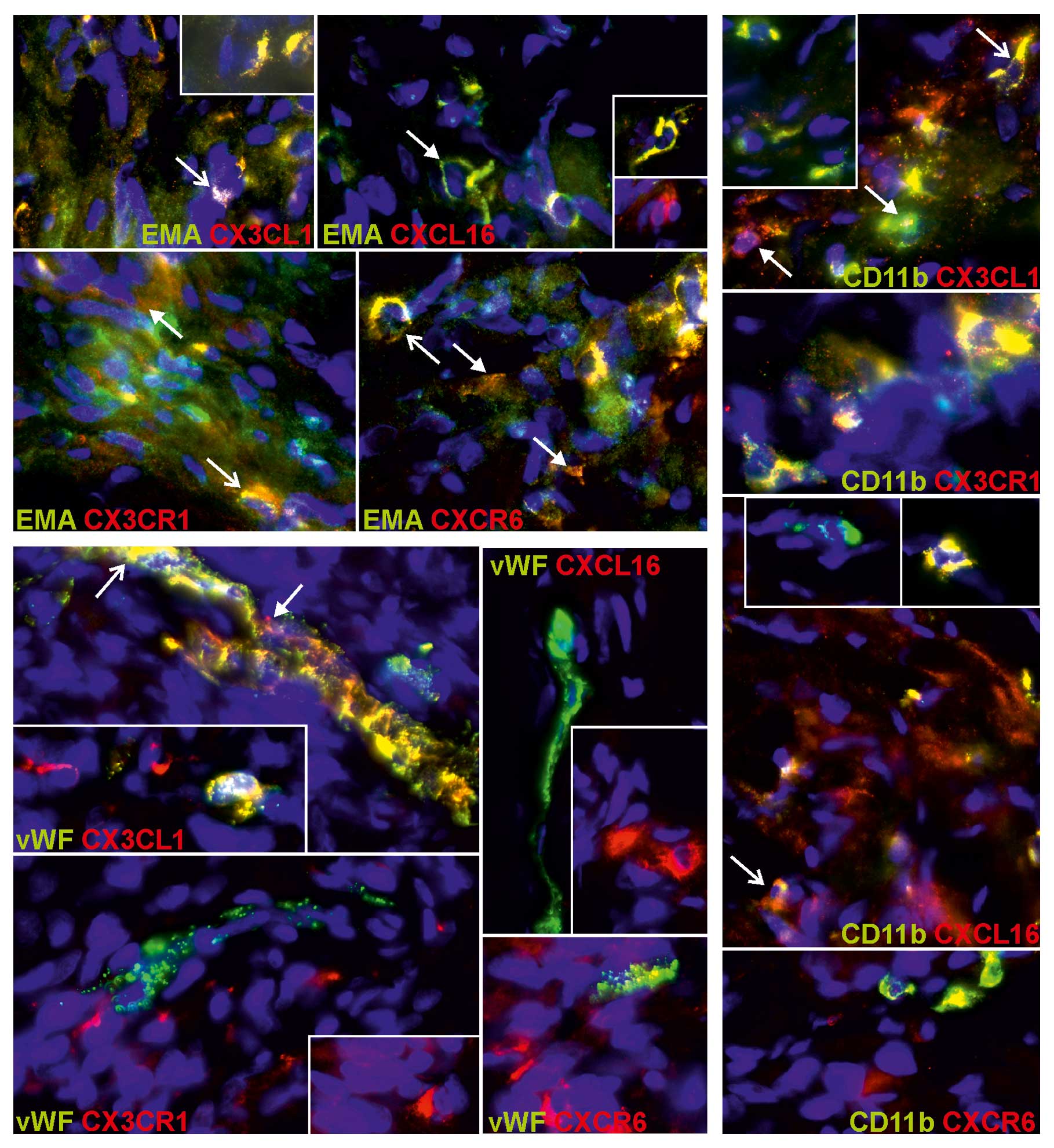|
1
|
Louis DN, Scheithauer BW, Budka H, von
Deimling A and Kepes JJ: Meningiomas. World Health Organization
Classification of Tumours: Pathology and Genetics of Tumours of the
Nervous System. Kleihues P and Cavenee WK: IARC Press; Lyon: pp.
176–184. 2000
|
|
2
|
Louis DN, Ohgaki H, Wiestler OD, Cavenee
WK, Burger PC, Jouvet A, Scheithauer BW and Kleihues P: The 2007
WHO classification of tumours of the central nervous system. Acta
Neuropathol. 114:97–109. 2007. View Article : Google Scholar : PubMed/NCBI
|
|
3
|
Whittle IR, Smith C, Navoo P and Collie D:
Meningiomas. Lancet. 363:1535–1543. 2004. View Article : Google Scholar : PubMed/NCBI
|
|
4
|
De Monte F: Current management of
meningiomas. Oncology. 9:83–96. 1995.
|
|
5
|
Simpson D: The recurrence of intracranial
meningiomas after surgical treatment. J Neurol Neurosurg
Psychiatry. 20:22–39. 1957. View Article : Google Scholar : PubMed/NCBI
|
|
6
|
McCarthy BJ, Davis FG, Freels S, Surawicz
TS, Damek DM, Grutsch J, Menck HR and Laws ER Jr: Factors
associated with survival in patients with meningioma. J Neurosurg.
88:831–839. 1998. View Article : Google Scholar : PubMed/NCBI
|
|
7
|
Rogers L and Mehta M: Role of radiation
therapy in treating intracranial meningiomas. Neurosurg Focus.
23:E42007. View Article : Google Scholar : PubMed/NCBI
|
|
8
|
Bajetto A, Bonavia R, Barbero S and
Schettini G: Characterization of chemokines and their receptors in
the central nervous system: physiopathological implications. J
Neurochem. 82:1311–1329. 2002. View Article : Google Scholar : PubMed/NCBI
|
|
9
|
Teicher BA and Fricker SP:
CXCL12(SDF-1)/CXCR4 pathway in cancer. Clin Cancer Res.
16:2927–2931. 2010. View Article : Google Scholar : PubMed/NCBI
|
|
10
|
Murphy PM: International Union of
Pharmacology. XXX Update on chemokine receptor nomenclature.
Pharmacol Rev. 54:227–229. 2002. View Article : Google Scholar : PubMed/NCBI
|
|
11
|
Nanki T, Shimaoka T, Hayashida K,
Taniguchi K, Yonehara S and Miyasaka N: Pathogenic role of the
CXCL16-CXCR6 pathway in rheumatoid arthritis. Arthritis Rheum.
52:3004–3014. 2005. View Article : Google Scholar : PubMed/NCBI
|
|
12
|
Sheikine Y and Sirsjö A: CXCL16/SR-PSOX -
a friend or a foe in atherosclerosis? Atherosclerosis. 197:487–495.
2008. View Article : Google Scholar : PubMed/NCBI
|
|
13
|
Wågsäter D, Hugander A and Dimberg J:
Expression of CXCL16 in human rectal cancer. Int J Mol Med.
14:65–69. 2004.
|
|
14
|
Ludwig A, Hundhausen C, Lambert MH,
Broadway N, Andrews RC, Bickett DM, Leesnitzer MA and Becherer JD:
Metalloproteinase inhibitors for the disintegrin-like
metalloproteinases ADAM10 and ADAM17 that differentially block
constitutive and phorbol ester-inducible shedding of cell surface
molecules. Comb Chem High Throughput Screen. 8:161–171. 2005.
View Article : Google Scholar
|
|
15
|
Held-Feindt J, Rehmke B, Mentlein R,
Hattermann K, Knerlich F, Hugo HH, Ludwig A and Mehdorn HM:
Overexpression of CXCL16 and its receptor CXCR6/Bonzo promotes
growth of human schwannomas. Glia. 56:764–774. 2008. View Article : Google Scholar : PubMed/NCBI
|
|
16
|
Darash-Yahana M, Gillespie JW, Hewitt SM,
Chen YY, Maeda S, Stein I, Singh SP, Bedolla RB, Peled A, Troyer
DA, Pikarsky E, Karin M and Farber JM: The chemokine CXCL16 and its
receptor, CXCR6, as markers and promoters of
inflammation-associated cancers. PLoS One. 4:e66952009. View Article : Google Scholar : PubMed/NCBI
|
|
17
|
Ludwig A and Mentlein R: Glial cross-talk
by transmembrane chemokines CX3CL1 and CXCL16. J Neuroimmunol.
198:92–97. 2008. View Article : Google Scholar : PubMed/NCBI
|
|
18
|
Abel S, Hundhausen C, Mentlein R, Schulte
A, Berkhout TA, Broadway N, Hartmann D, Sedlacek R, Dietrich S,
Muetze B, Schuster B, Kallen KJ, Saftig P, Rose-John S and Ludwig
A: The transmembrane CXC-chemokine ligand 16 is induced by
IFN-gamma and TNF-alpha and shed by the activity of the
disintegrin-like metalloproteinase ADAM10. J Immunol.
172:6362–6372. 2004. View Article : Google Scholar : PubMed/NCBI
|
|
19
|
Liu C, Luo D, Streit WJ and Harrison JK:
CX3CL1 and CX3CR1 in the GL261 murine model of glioma: CX3CR1
deficiency does not impact tumor growth or infiltration of
microglia and lymphocytes. J Neuroimmunol. 198:98–105. 2008.
View Article : Google Scholar : PubMed/NCBI
|
|
20
|
Cardona AE, Pioro EP, Sasse ME, Kostenko
V, Cardona SM, Dijkstra IM, Huang D, Kidd G, Dombrowski S, Dutta R,
Lee JC, Cook DN, Jung S, Lira SA, Littman DR and Ransohoff RM:
Control of microglial neurotoxicity by the fractalkine receptor.
Nat Neurosci. 9:917–924. 2006. View
Article : Google Scholar : PubMed/NCBI
|
|
21
|
Hojo S, Koizumi K, Tsuneyama K, Arita Y,
Cui Z, Shinohara K, Minami T, Hashimoto I, Nakayama T, Sakurai H,
Takano Y, Yoshie O, Tsukada K and Saiki I: High-level expression of
chemokine CXCL16 by tumor cells correlates with a good prognosis
and increased tumor-infiltrating lymphocytes in colorectal cancer.
Cancer Res. 67:4725–4731. 2007. View Article : Google Scholar : PubMed/NCBI
|
|
22
|
Gutwein P, Schramme A, Sinke N,
Abdel-Bakky MS, Voss B, Obermüller N, Doberstein K, Koziolek M,
Fritzsche F, Johannsen M, Jung K, Schaider H, Altevogt P, Ludwig A,
Pfeilschifter J and Kristiansen G: Tumoural CXCL16 expression is a
novel prognostic marker of longer survival times in renal cell
cancer patients. Eur J Cancer. 45:478–489. 2009. View Article : Google Scholar : PubMed/NCBI
|
|
23
|
Matsushita K, Toiyama Y, Tanaka K, Saigusa
S, Hiro J, Uchida K, Inoue Y and Kusunoki M: Soluble CXCL16 in
preoperative serum is a novel prognostic marker and predicts
recurrence of liver metastases in colorectal cancer patients. Ann
Surg Oncol. 19(Suppl 3): 518–527. 2012. View Article : Google Scholar : PubMed/NCBI
|
|
24
|
Ha HK, Lee W, Park HJ, Lee SD, Lee JZ and
Chung MK: Clinical significance of CXCL16/CXCR6 expression in
patients with prostate cancer. Mol Med Rep. 4:419–424.
2011.PubMed/NCBI
|
|
25
|
Hattermann K, Ludwig A, Gieselmann V,
Held-Feindt J and Mentlein R: The chemokine CXCL16 induces
migration and invasion of glial precursor cells via its receptor
CXCR6. Mol Cell Neurosci. 39:133–141. 2008. View Article : Google Scholar : PubMed/NCBI
|
|
26
|
Bajetto A, Barbieri F, Dorcaratto A,
Barbero S, Daga A, Porcile C, Ravetti JL, Zona G, Spaziante R,
Corte G, Schettini G and Florio T: Expression of CXC chemokine
receptors 1–5 and their ligands in human glioma tissues: Role of
CXCR4 and SDF1 in glioma cell proliferation and migration.
Neurochem Int. 49:423–432. 2006.
|
|
27
|
Rodero M, Marie Y, Coudert M, Blondet E,
Mokhtari K, Rousseau A, Raoul W, Carpentier C, Sennlaub F, Deterre
P, Delattre J-Y, Debré P, Sanson M and Combadière C: Polymorphism
in the microglial cell-mobilizing CX3CR1 gene is associated with
survival in patients with glioblastoma. J Clin Oncol. 26:5957–5964.
2008. View Article : Google Scholar : PubMed/NCBI
|
|
28
|
Xin H, Kikuchi T, Andarini S, Ohkouchi S,
Suzuki T, Nukiwa T, Huqun, Hagiwara K, Honjo T and Saijo Y:
Antitumor immune response by CX3CL1 fractalkine gene transfer
depends on both NK and T cells. Eur J Immunol. 35:1371–1380. 2005.
View Article : Google Scholar : PubMed/NCBI
|
|
29
|
Yu YR, Fong AM, Combadiere C, Gao JL,
Murphy PM and Patel DD: Defective antitumor response in
CX3CR1-deficient mice. Int J Cancer. 121:316–322. 2007. View Article : Google Scholar : PubMed/NCBI
|
|
30
|
Imai T, Hieshima K, Haskell C, Baba M,
Nagira M, Nishimura M, Kakizaki M, Takagi S, Nomiyama H, Schall TJ
and Yoshie O: Identification and molecular characterization of
fractalkine receptor CX3CR1, which mediates both leukocyte
migration and adhesion. Cell. 91:521–530. 1997. View Article : Google Scholar : PubMed/NCBI
|
|
31
|
Combadiere C, Salzwedel K, Smith ED,
Tiffany HL, Berger EA and Murphy PM: Identification of CX3CR1. A
chemotactic receptor for the human CX3C chemokine fractalkine and a
fusion coreceptor for HIV-1. J Biol Chem. 273:23799–23804. 1998.
View Article : Google Scholar : PubMed/NCBI
|
|
32
|
Ludwig A and Weber C: Transmembrane
chemokines: versatile ‘special agents’ in vascular inflammation.
Thromb Haemost. 97:694–703. 2007.
|
|
33
|
Unutmaz D, Xiang W, Sunshine MJ, Campbell
J, Butcher E and Littman DR: The primate lentiviral receptor
Bonzo/STRL33 is coordinately regulated with CCR5 and its expression
pattern is conserved between human and mouse. J Immunol.
165:3284–3292. 2000. View Article : Google Scholar : PubMed/NCBI
|
|
34
|
Matloubian M, David A, Engel S, Ryan JE
and Cyster JG: A transmembrane CXC chemokine is a ligand for
HIV-coreceptor Bonzo. Nat Immunol. 1:298–304. 2000. View Article : Google Scholar : PubMed/NCBI
|
|
35
|
Geissmann F, Cameron TO, Sidobre S,
Manlongat N, Kronenberg M, Briskin MJ, Dustin ML and Littman DR:
Intravascular immune surveillance by CXCR6+ NKT cells
patrolling liver sinusoids. PLoS Biol. 3:e1132005. View Article : Google Scholar : PubMed/NCBI
|
|
36
|
Tong Y, Mentlein R, Buhl R, Hugo H-H,
Mehdorn HM and Held-Feindt J: Overexpression of midkine contributes
to anti-apoptotic effects in human meningiomas. J Neurochem.
100:1097–1107. 2007. View Article : Google Scholar : PubMed/NCBI
|
|
37
|
Homey B, Müller A and Zlotnik A:
Chemokines: agents for the immunotherapy of cancer? Nat Rev
Immunol. 2:175–184. 2002. View
Article : Google Scholar : PubMed/NCBI
|
|
38
|
Harrison JK, Jiang Y, Chen S, Xia Y,
Maciejewski D, McNamara RK, Streit WJ, Salafranca MN, Adhikari S,
Thompson DA, Botti P, Bacon KB and Feng L: Role for neuronally
derived fractalkine in mediating interactions between neurons and
CX3CR1-expressing microglia. Proc Natl Acad Sci USA.
95:10896–10901. 1998. View Article : Google Scholar : PubMed/NCBI
|
|
39
|
Hatori K, Nagai A, Heisel R, Ryu JK and
Kim SU: Fractalkine and fractalkine receptors in human neurons and
glial cells. J Neurosci Res. 69:418–426. 2002. View Article : Google Scholar : PubMed/NCBI
|
|
40
|
Miller RJ, Rostene W, Apartis E, Banisadr
G, Biber K, Milligan ED, White FA and Zhang J: Chemokine action in
the nervous system. J Neurosci. 28:11792–11795. 2008. View Article : Google Scholar : PubMed/NCBI
|
|
41
|
Mizuno T, Kawanokuchi J, Numata K and
Suzumura A: Production and neuroprotective functions of fractalkine
in the central nervous system. Brain Res. 979:65–70. 2003.
View Article : Google Scholar : PubMed/NCBI
|
|
42
|
Held-Feindt J, Hattermann K, Müerköster
SS, Wedderkopp H, Knerlich-Lukoschus F, Ungefroren H, Mehdorn HM
and Mentlein R: CX3CR1 promotes recruitment of human
glioma-infiltrating microglia/macrophages (GIMs). Exp Cell Res.
316:1553–1566. 2010. View Article : Google Scholar : PubMed/NCBI
|
|
43
|
Guo J, Chen T, Wang B, Zhang M, An H, Guo
Z, Yu Y, Qin Z and Cao X: Chemoattraction, adhesion and activation
of natural killer cells are involved in the antitumor immune
response induced by fractalkine/CX3CL1. Immunol Lett. 89:1–7. 2003.
View Article : Google Scholar : PubMed/NCBI
|
|
44
|
Guo J, Zhang M, Wang B, Yuan Z, Guo Z,
Chen T, Yu Y, Qin Z and Cao X: Fractalkine transgene induces
T-cell-dependent antitumor immunity through chemoattraction and
activation of dendritic cells. Int J Cancer. 103:212–220. 2003.
View Article : Google Scholar : PubMed/NCBI
|
|
45
|
Lavergne E, Combadière B, Bonduelle O, Iga
M, Gao JL, Maho M, Boissonnas A, Murphy PM, Debré P and Combadière
C: Fractalkine mediates natural killer-dependent antitumor
responses in vivo. Cancer Res. 63:7468–7474. 2003.PubMed/NCBI
|
|
46
|
Tang L, Hu HD, Hu P, Lan YH, Peng ML, Chen
M and Ren H: Gene therapy with CX3CL1/Fractalkine induces antitumor
immunity to regress effectively mouse hepatocellular carcinoma.
Gene Ther. 14:1226–1234. 2007. View Article : Google Scholar : PubMed/NCBI
|
|
47
|
Matsubara T, Ono T, Yamanoi A, Tachibana M
and Nagasue N: Fractalkine-CX3CR1 axis regulates tumor cell cycle
and deteriorates prognosis after radical resection for
hepatocellular carcinoma. J Surg Oncol. 95:241–249. 2007.
View Article : Google Scholar : PubMed/NCBI
|
|
48
|
Scholz F, Schulte A, Adamski F, Hundhausen
C, Mittag J, Schwarz A, Kruse ML, Proksch E and Ludwig A:
Constitutive expression and regulated release of the transmembrane
chemokine CXCL16 in human and murine skin. J Invest Dermatol.
127:1444–1455. 2007. View Article : Google Scholar : PubMed/NCBI
|
|
49
|
le Blanc LM, van Lieshout AW, Adema GJ,
van Riel PL, Verbeek MM and Radstake TR: CXCL16 is elevated in the
cerebrospinal fluid versus serum and in inflammatory conditions
with suspected and proved central nervous system involvement.
Neurosci Lett. 397:145–148. 2006.PubMed/NCBI
|
|
50
|
Shimaoka T, Nakayama T, Fukumoto N, Kume
N, Takahashi S, Yamaguchi J, Minami M, Hayashida K, Kita T, Ohsumi
J, Yoshie O and Yonehara S: Cell surface-anchored SR-PSOX/CXC
chemokine ligand 16 mediates firm adhesion of CXC chemokine
receptor 6-expressing cells. J Leukoc Biol. 75:267–274. 2004.
View Article : Google Scholar : PubMed/NCBI
|
|
51
|
Hase K, Murakami T, Takatsu H, Shimaoka T,
Iimura M, Hamura K, Kawano K, Ohshima S, Chihara R, Itoh K,
Yonehara S and Ohno H: The membrane-bound chemokine CXCL16
expressed on follicle-associated epithelium and M cells mediates
lympho-epithelial interaction in GALT. J Immunol. 176:43–51. 2006.
View Article : Google Scholar : PubMed/NCBI
|
|
52
|
Matsumura S, Wang B, Kawashima N,
Braunstein S, Badura M, Cameron TO, Babb JS, Schneider RJ, Formenti
SC, Dustin ML and Demaria S: Radiation-induced CXCL16 release by
breast cancer cells attracts effector T cells. J Immunol.
181:3099–3107. 2008. View Article : Google Scholar : PubMed/NCBI
|
|
53
|
Hu W, Zhen X, Xiong B, Wang B, Zhang W and
Zhou W: CXCR6 is expressed in human prostate cancer in vivo and is
involved in the in vitro invasion of PC3 and LNCap cells. Cancer
Sci. 99:1362–1369. 2008. View Article : Google Scholar : PubMed/NCBI
|
|
54
|
Wente MN, Gaida MM, Mayer C, Michalski CW,
Haag N, Giese T, Felix K, Bergmann F, Giese NA and Friess H:
Expression and potential function of the CXC chemokine CXCL16 in
pancreatic ductal adenocarcinoma. Int J Oncol. 33:297–308.
2008.PubMed/NCBI
|
|
55
|
Gaida MM, Günther F, Wagner C, Friess H,
Giese NA, Schmidt J, Hänsch GM and Wente MN: Expression of the
CXCR6 on polymorphonuclear neutrophils in pancreatic carcinoma and
in acute, localized bacterial infections. Clin Exp Immunol.
154:216–223. 2008. View Article : Google Scholar : PubMed/NCBI
|


















